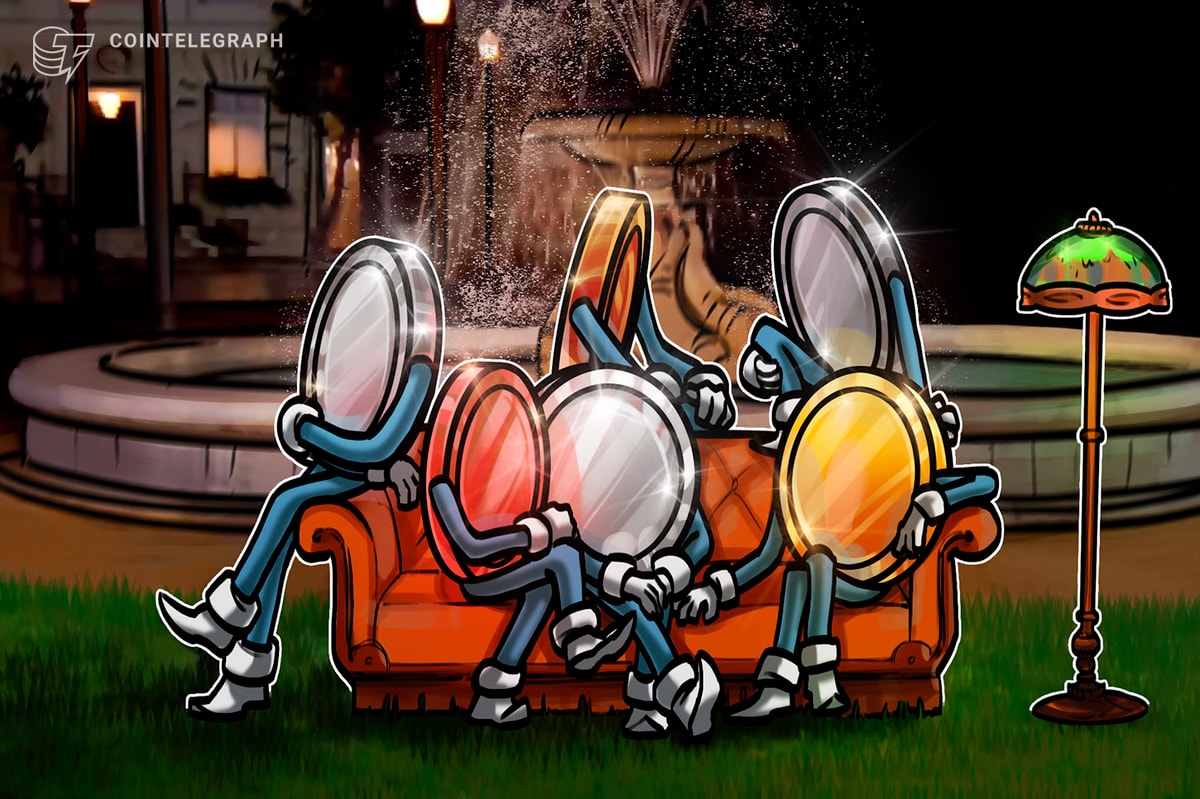After three prime ministers in as many years, where does the UK Conservative Party go next?
The immediate question of who will succeed Liz Truss as the party and the UK’s leader, after she announced she would resign just six weeks into her volatile tenure, will be answered in the next week. But while Truss’s downfall was swift, it was the culmination of years of economic and political shortsightedness — and those years weren’t just contained to Brexit. How her Conservative Party and the country overall chart a path forward is far from clear.
Truss’s successor will be chosen by the same process that vaulted her to the premiership less than two months ago: an internal process consulting first Conservative Party members of Parliament, and then party members more broadly. And the names are, again, ones we’ve heard before. Including, perhaps, Truss’s predecessor Boris Johnson.
All of which makes it unclear whether the next prime minister — whoever it may be — will be able to solve the deeper and more complex problems remaining within British politics, economics, and society.
How will the next prime minister be chosen — and who is it likely to be?
The Tories have chosen a highly expedited process to pick their next leader this go-round.
Truss will remain in office while Tory MPs nominate their preferred candidate over the weekend. By 2 pm local time on Monday the 24th, the candidate pool — those who have received at least 100 nominations each — will be locked. MPs will begin voting that same day, until they narrow the field to two candidates, the Guardian reported. That process should be completed by 9 pm local time.
Once those two candidates are secured, regular Conservative Party members will be able to vote online. It will all wrap up by October 28, the party has promised.
But realistically, the 100-nomination threshold has already winnowed the field.
Some of the biggest names right now include Rishi Sunak, the former chancellor of the exchequer whom Truss beat out among party membership to secure her brief time at 10 Downing Street; Penny Mordaunt, the leader of the House of Commons; and, perhaps not surprisingly, former Prime Minister Boris Johnson.
Though Sunak lost the membership vote to Truss by 14 percentage points during the September race for leadership, his colleagues in Parliament preferred him over Truss. During the campaigning, he spoke out against her supply-side economics plan, dubbed Trussonomics, calling it “fairytale economics” in a debate and warning that it could cause exactly the kind of chaos that unfolded after Truss’s first Chancellor Kwasi Kwarteng announced the measures on September 23. Sunak is the obvious choice “in a rational, clear-thinking world,” Tony Travers, the director of LSE London, told Vox in an interview — though British politics of late has proved to be anything but.
Sunak is perceived as the adult in the room, and his previous experience as Johnson’s chancellor put him in a comfortable position to right the economy in the short term. However, the revelation that his wife may have dodged 20 million pounds in taxes despite being wealthier than Queen Elizabeth II soured Sunak’s reputation somewhat with the public.
Among Conservative voting members, Johnson is the clear frontrunner, although that’s not the case with his former colleagues in Parliament, nor with the British public as a whole. “He’s an unusual character, he makes [Tory voters] laugh, he doesn’t take anything too seriously — which is not true, of course,” Travers said. “He doesn’t take any of the normal things in politics terribly seriously, [though] he does take being in office and winning seriously.”
Many members of Parliament, or MPs, can look back at Johnson’s stunning 2019 victory and extrapolate that having him back in power could help save their seats in the upcoming local elections. However, a number of MPs serving in Johnson’s government — most notably Sunak — resigned quite dramatically over the summer, likely making them loath to support another Johnson government. And that may make it difficult for Johnson to clear the 100-nomination threshold the party (perhaps deliberately) set.
Penny Mordaunt, the only MP who has officially declared her candidacy as of this writing, is the Conservative leader of the House of Commons and also stood in the election to replace Johnson. Although she’s not a household name like Johnson or even Sunak, she’s respected among her colleagues in Parliament. During the elections to replace Johnson, Mordaunt actually beat out Truss in every balloting round Tory MPs held to narrow the field until the final round.
Three other candidates — MPs Suella Braverman and Kemi Badenoch, and Defense Minister Ben Wallace — could stand as well, according to reporting from Politico, although none have confirmed their intention to do so.
The current political crisis is years in the making
Although both Truss’s and Johnson’s departures were shocking, the political and economic crises in the UK have been brewing since the 2008 financial crisis.
Liam Stanley, a politics lecturer at the University of Sheffield and the author of the book Britain Alone: How a decade of conflict remade the nation, told Vox in an interview that some of the seeds for today’s crises were planted with David Cameron, the former prime minister who headed the Conservative Party from 2005 to 2016. “He took over at a time when … you could basically campaign on the idea that there would be constant economic growth, albeit at a moderately low level,” he explained. “That meant that politics, in a way, was quite easy. It was just a case of making relatively small decisions about how you share those proceeds from growth.”
Cameron was a centrist, and his opposition government agreed to back the ruling Labour Party’s social spending on the National Health Service and education. Then the financial crash of 2008 happened. Cameron and the Tories painted Labour “as to blame for the financial crisis, the recession, and everything that came with it,” Stanley said. When Cameron assumed the premiership in 2010, the Tories instituted massive fiscal austerity, degrading institutions like the NHS and failing to deal with underlying issues like stagnant wages and an affordable housing crisis. Those problems have persisted in the intervening years, during which the Conservative Party has held power. Now the UK is in a cost-of-living crisis, tied partly to those long-term factors and exacerbated by current global inflation, the war in Ukraine, and the West’s ensuing sanctions against Russia.
British politics also effectively become a two-party system under Cameron; the Liberal Democrats, once a potent, moderate opposition force to both the Tories and Labour, formed a coalition with the Conservative Party. Then, during the Brexit vote and subsequently Johnson’s campaign, the Tories picked up constituents who had previously voted Labour, giving them a 71-seat working majority that has arguably contributed to their downfall.
Part of that’s an identity crisis; without Brexit to unify wildly divergent types of voters, the Tories have major issues with factionalization. But also, as long as Conservatives held on to their majority and believed Labour to be unelectable, Travers said, they could behave in an “undisciplined” manner — like Johnson flouting his own government’s Covid-19 laws and Truss rolling out an illogical and nakedly political economic agenda.
What happens next?
The first order of business is, ostensibly, to stabilize the UK’s economy, which Trussonomics threw into deep disarray.
“Stability would go a long way toward helping things right now, but even that stability is only going to help certain people,” Stanley said. That’s because the most trenchant and intractable issue will still be the cost-of-living crisis.
“It’s conceivable that Conservatives next week select a leader who then turns out to be rather good at combining the factions, convincing everybody there’s a common enemy, getting the economy back on some sort of even keel, having a convincing narrative for the future,” Travers said.
“Whoever takes over, they’ll probably have to enact some sort of prudent fiscal policy, which probably means some form of austerity,” Nikhil Sanghani, managing director of research at the Official Monetary and Financial Institutions Forum, told Vox.
And amid rampant inflation, Chancellor of the Exchequer Jeremy Hunt is already asking government agencies other than the health and defense ministries to reduce their budgets by as much as 15 percent, Bloomberg reported this week, as well as putting an April deadline on Truss’s planned energy support payments. It’s quite possible that whoever becomes prime minister will enact tax increases, which would raise revenue but would be politically embarrassing for a party that so recently supported 1980s-style tax cuts.
The financial crunch for most Britons will only get tighter, as the value of the pound remains low while inflation is still quite high. The Bank of England has also raised interest rates seven times in recent months to combat inflation, which has led to soaring mortgage rates, causing fears of a coming housing market crash.
“Whichever government comes in, they’re going to be faced with a difficult situation; they’ve already been shown on the one hand that markets aren’t to be messed with and so you can’t just offer unlimited support to the economy,” Sanghani said. “The flip side is if you stick to more prudent fiscal policies and fiscal austerity, that’s going to be difficult to implement politically when you’re already facing a weak economy, high inflation, and people wanting support to pay their bills or mortgages, and the government unable to step in and provide that because their finances aren’t really in order right now.”
Although the Tories won’t call an early general election right now — they would undoubtedly lose — a Labour victory seems all but assured at the next one. Multiple experts reminded Vox of the maxim of the British government: “Oppositions don’t win elections, governments lose them.” Keir Starmer, the Labour leader, isn’t particularly charismatic, but, Travers and Stanley told Vox, he has primarily tried to stay toward the political center and is advancing policy ideas like Labour’s New Deal for Working People and a Green Prosperity Plan.
“I don’t think Labour’s in quite the position they were in the late 1990s,” the time of Tony Blair and New Labour, Travers told Vox. “But, having said that, Labour has bigger opinion poll leads now than Tony Blair did even then. But that’s largely because the Conservatives have tanked their reputation.”
One critical issue that the Tories don’t seem to have contended with is how to incorporate the swath of former Labour voters — blue-collar trade unionists, often, who expect high government investment in social priorities but wanted to leave the European Union or find tax cuts appealing — into the party.
Too many British politicians, Stanley said, are also operating out of an old economic playbook in which incremental growth was assumed. With that no longer the case, leaders who are “very moderate, quite bland, all about trying to manage one’s image,” are extremely disconnected from a public that’s struggling to pay the bills.
The British public, experts said, is used to being alienated from and disliking its political leadership. Travers drew a direct parallel from UK tabloid the Sun’s viral stream asking whether Truss’s tenure would outlast a head of lettuce to William Hogarth’s 18th-century works depicting debauchery, gluttony, and bribery in an election contest between the Whigs and the Tories of the time, saying “there’s a rich history of British satire, and ridicule, and irony” when it comes to politicians.
Despite the tumult and the overwhelming dissatisfaction with the Tories, “It would be genuinely shocking if the Conservative Party didn’t survive,” Travers told Vox. “It’s an incredibly long-established and durable political party, one of the longest-established and most durable in the world, and it has incredible capacities to adapt and change and revive itself and move on.”
Of course, Travers noted, that they were badly defeated in 1997, 1966, 1945, and in 1906, but overall, “they do badly and start again.”
















